
Workflow of interpolated shorttime Fourier transform algorithm. Download Scientific Diagram
1. I want to try STFT & FFT using Matlab. What I wonder is STFT of signal computes the result that FFT (DFT) of each windowed signal and I can see the change of each frequency value over time. If I calculate the average of each frequency over the total time, can I get the same amplitude result with the result of the FFT (DFT) of the whole.

(a) Short Time Fourier Transform (STFT) of the infrasound signal... Download Scientific Diagram
The phase vocoder is a variation on the short-time Fourier transform that uses phase information to improve the frequency estimates. It is ideal for use in applications such as time-stretching and/or time compression of audio, though there are a number of other special effects that can be implemented using the phase-vocoder strategy.

06 Short Time Fourier Transform YouTube
•Use of MATLAB - Applications 2. 4/7/2014 2 Scope and Goals • To expand the capabilities of Fourier transform for time-varying signals • In addition to showing the frequency content of the signals, it is also desirable to have an idea of when each frequency. Short-Time Fourier Transform
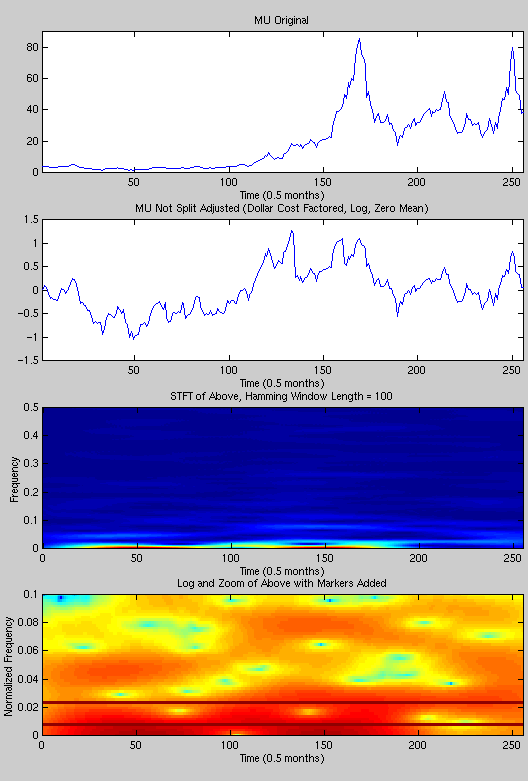
Figure 2. Short time Fourier transform of the real world data
Matlab routines for efficient calculation of the Short Time Fourier Transform (STFT) and its inverse (ISTFT) in the least squares sense. The implementation is fully vectorised, and is faster than MATLAB's built-in function spectrogram. The code also supports multi-channel signals.
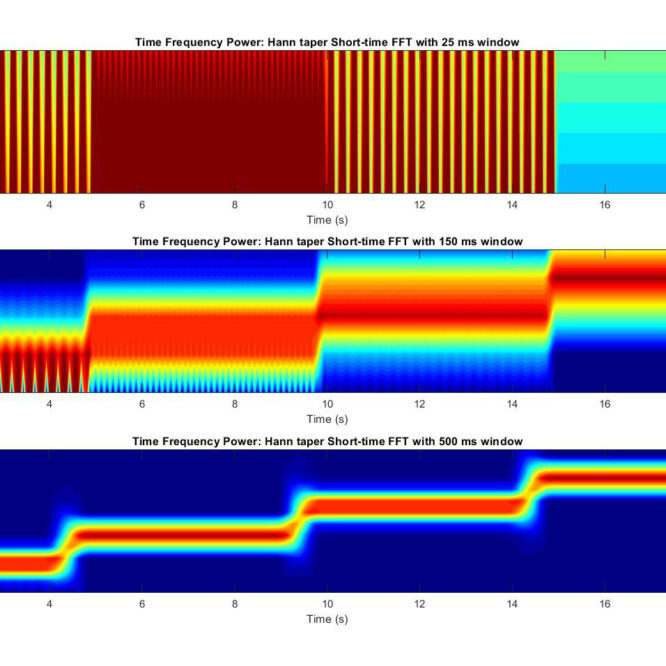
Biophysics Lab Biophysics Lab
Discussions (2) %% function [t,frequency,Power_spectrum]=fft_s (y,windowlength) %% Inputs : % y: input raw signal. % windowlength: window length to take fast fourier transform, it is a. % factor of smapling frequency for example one can enter a window length. % half of the sampling frequency by enteríng 0.5 and if fs =1000, then the.

fourier transform table draft Mathematics, Math lessons, Fourier transformation
The short-time Fourier transform (STFT), is a Fourier-related transform used to determine the sinusoidal frequency and phase content of local sections of a signal as it changes over time. In practice, the procedure for computing STFTs is to divide a longer time signal into shorter segments of equal length and then compute the Fourier transform separately on each shorter segment.

Fourier Transform 101 — Part 4 Discrete Fourier Transform
1 Where exactly are you stuck? Have you read the MathWorks page for stft and the references, or the Wikipedia page Short-time Fourier transform. - GrapefruitIsAwesome Mar 27, 2022 at 10:52 This answer may be useful for the question asked here. - robert bristow-johnson Jul 28, 2022 at 4:51 Add a comment

Short Time Fourier Transform File Exchange MATLAB Central
1) a matrix with the complex STFT coefficients with time across the columns and frequency across the rows; 2) a frequency vector; 3) a time vector. An example is given in order to clarify the usage of the function. For convenience, the input and output arguments are given in the beginning of the function.
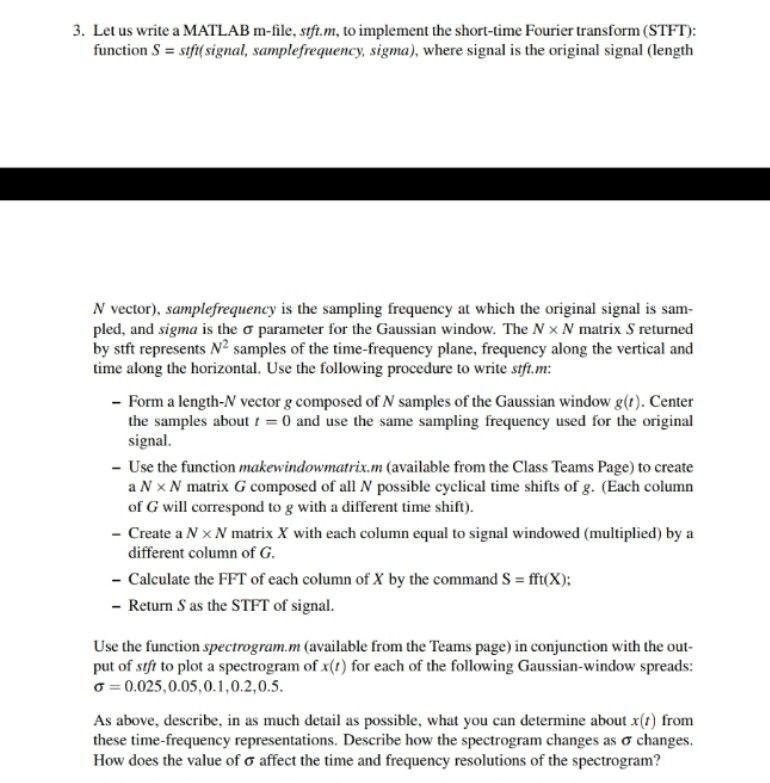
Solved 3. Let us write a MATLAB mfile, stfi.m, to implement
Short-Time Fourier Transform Generate a chirp with sinusoidally varying frequency. The signal is sampled at 10 kHz for two seconds. fs = 10e3; t = 0:1/fs:2; x = vco (sin (2*pi*t), [0.1 0.4]*fs,fs); Compute the short-time Fourier transform of the chirp.
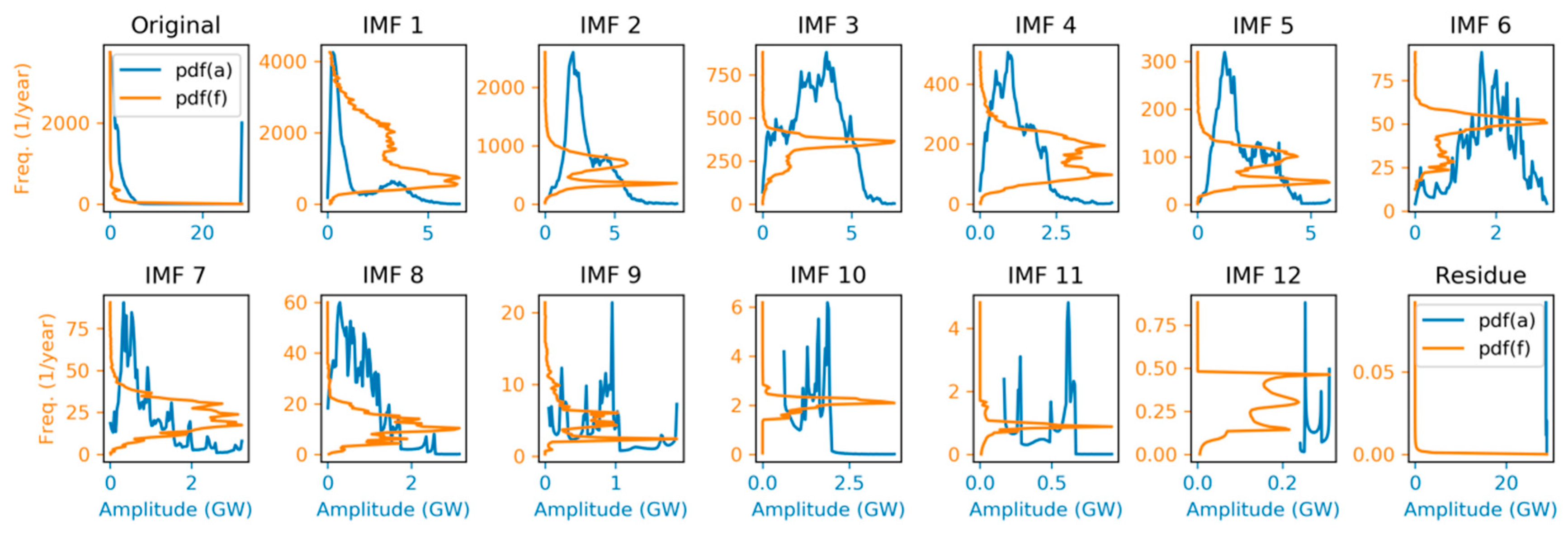
fft frequency axis
Short-Time Fourier Transform for deblurring Variational Autoencoders. Variational Autoencoders (VAEs) are powerful generative models, however their generated samples are known to suffer from a characteristic blurriness, as compared to the outputs of alternative generating techniques. Extensive research efforts have been made to tackle this.

Deep Learning for Engineers, Part 3 Data Preprocessing and the ShortTime Fourier Transform
A complete playlist of 'Advanced Digital Signal Processing (ADSP)' is available on: https://www.youtube.com/playlist?list=PLRtAIlY6hZAMXNmYEzzL1Ns3P9sE8ouR3T.

Shorttime Fourier transform (STFT) overview. Download Scientific Diagram
Deep Learning Short-Time Fourier Transform of Chirp This example uses: Deep Learning Toolbox Signal Processing Toolbox Generate a signal sampled at 600 Hz for 2 seconds. The signal consists of a chirp with sinusoidally varying frequency content. fs = 6e2; t = 0:1/fs:2; x = vco (sin (2*pi*t), [0.1 0.4]*fs,fs);

Matlab realizes a short time Fourier transform Programmer Sought
The present code is a Matlab function that provides a Short-Time Fourier Transform (STFT) of a given signal x [n]. The function is an alternative of the Matlab command "spectrogram". The output of the function is: 1) a matrix with the complex STFT coefficients with time across the columns and frequency across the rows; 2) a frequency vector;
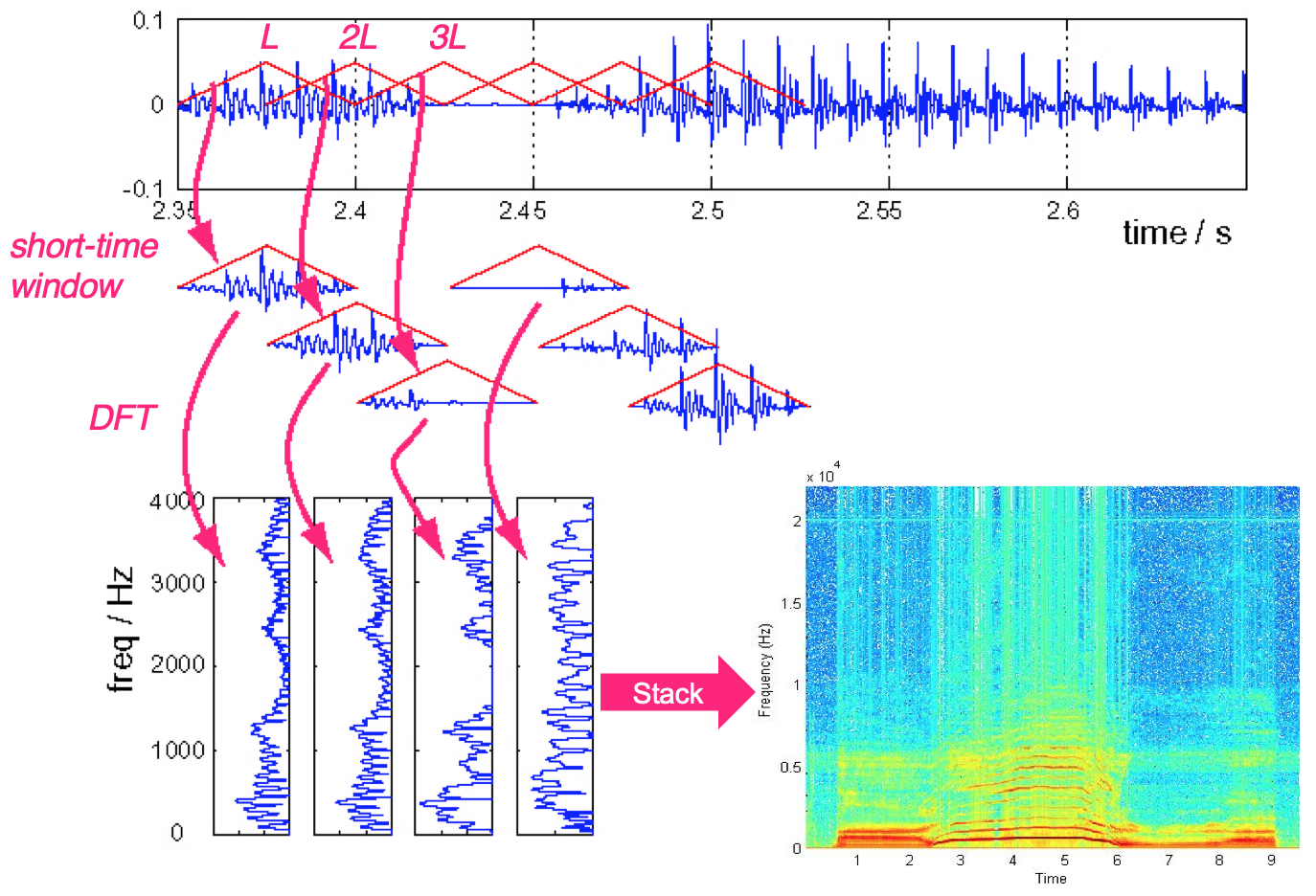
Representing Audio — OpenSource Tools & Data for Music Source Separation
s = spectrogram (x) returns the Short-Time Fourier Transform (STFT) of the input signal x. Each column of s contains an estimate of the short-term, time-localized frequency content of x. The magnitude squared of s is known as the spectrogram time-frequency representation of x [1]. example

Short Time Fourier Transform Discrete Fourier Transform Fast Fourier Transform
Description example layer = stftLayer creates a Short-Time Fourier Transform (STFT) layer. The input to stftLayer must be a dlarray (Deep Learning Toolbox) object in "CBT" format with a size along the time dimension greater than the length of Window. stftLayer formats the output as "SCBT" . For more information, see Layer Output Format. example

Matlab timefrequency analysis of shorttime Fourier transform spectrogram Programmer Sought
Two Methods for Short Time Fourier Transform (STFT) - File Exchange - MATLAB Central Two Methods for Short Time Fourier Transform (STFT) Version 1.0.1 (531 KB) by Ilias Konsoulas Two fast STFT computation scripts and 2 illustrative demos. 0.0 (0) 533 Downloads Updated 24 May 2020 View License Overview Functions Version History Reviews (0)